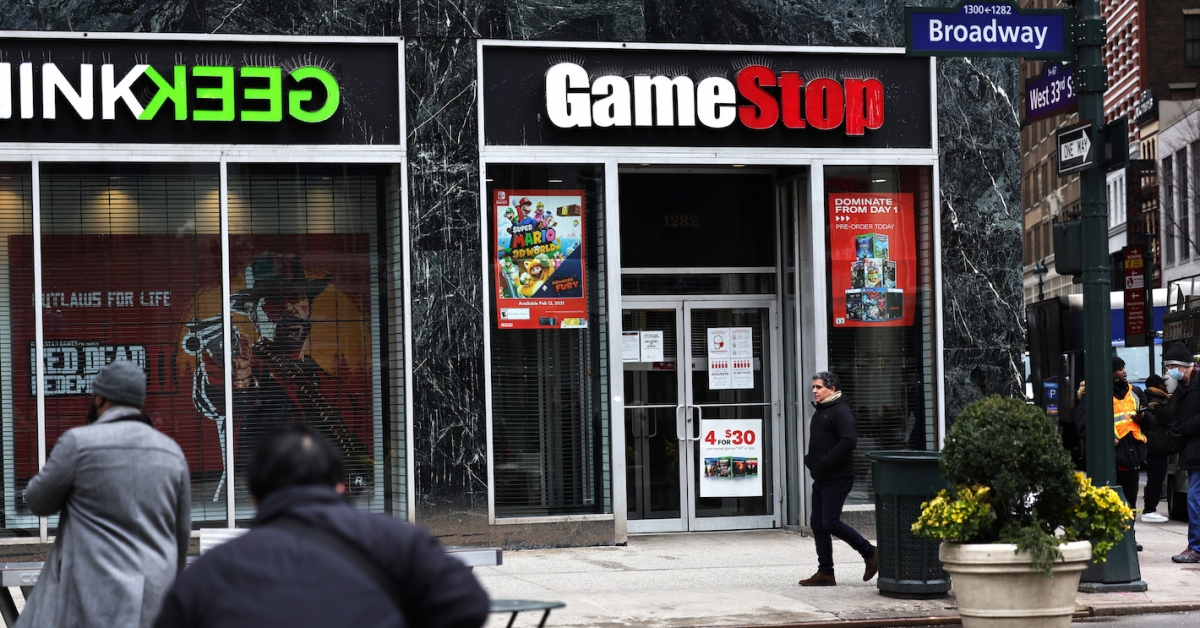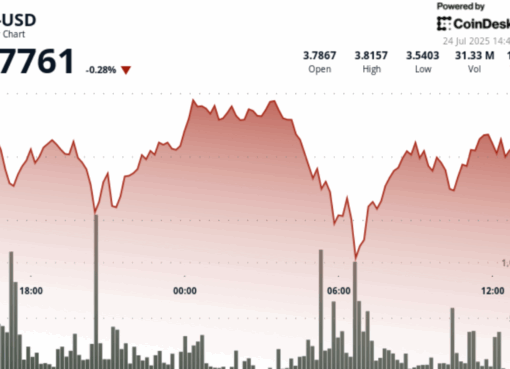The Gamestop short squeeze – in Bitcoin parlance, “the squeezening” – is only the latest example of online memes crossing into the real world and having real world consequences.
Those of us who have been on the internet for a little while will recall the glory days of 4Chan and the practice of online griefers mobbing Second Life or Habbo Hotel.
Preston Byrne, a CryptoX columnist, is a partner in Anderson Kill’s Technology, Media and Distributed Systems Group. He advises software, internet and fintech companies.
We also recall that those griefers – or, at least, their fellow-travelers – experimented with real-world organizing in a series of protests around the world against the Church of Scientology, code-named “Project Chanology.” I remember these protests well, and recall gushing about them to one of my law school classmates in total amazement that references to LongCat, Over 9000, and Rick Astley were being piped into the open air of London’s streets. Few if any people older than we were would have understood them.
The esoteric nature of that subculture notwithstanding, the protests made national news across the world for a variety of reasons. In London, for example, an eponymous teenager named Epic Nose Guy refused to put away a sign reading “Scientology is a Dangerous Cult” and received a court summons as a result, raising free speech concerns. Ultimately, though, the interest in these protests was not due to anyone treating them particularly seriously. Most observers seemed only mildly amused that something online managed to get out of its cage, albeit temporarily, and make its presence known among the normies.
Fast forward a decade, and it is clear historians of the future will see the Anonymous street protests of 2008 as being more consequential than the global financial crisis that emerged later in the year.
Our world is now in thrall to the memes. I have argued elsewhere that Bitcoin is best understood as meme money: “Bitcoin’s growth is not based on its technology alone (which, while powerful, is open-source and therefore easily replicable) but rather on the strength of virality, encouraged by the vested interests who held early and invested in marketing it; with no genuine business underlying it, it acquires its (very substantial) memetic potency only from the evangelism of those who hodl and preach.”
See also: Wall Street, Big Tech Clamp Down on GameStop-Style Pumps; Biden Admin ‘Monitoring’ Situation
So it has been with every other major upset of the last four years. Donald Trump was the meme President. The trespassing on the Capitol three weeks ago by some of the same people who produced those memes in 2016 was driven, at least in part, by new and even more potent conspiratorial memes on the internet. Now, hedge funds are getting utterly destroyed by a group Redditors gleefully committing memetic securities fraud in the open.
The crypto-universe, being principally concerned with meme money, contains both institutional types who are, at least as far as I can tell, thoroughly rattled at the roving band of meme-barbarians at their gates. It also contains meme warriors euphoric at their newfound power.
And just as we have seen social media companies co-opted by state actors to carry out censorship of enemy memes, financial services providers shatter norms at warp speed by cutting off brokerage accounts from hot meme stocks like $GME and $AMC.
Once the lulz have been had, the Gamestop event will likely lead to calls for (a) Section 230 reform by elites who are rattled that a bunch of shitposters can ruin them in the markets and (b) some type of regulatory intervention in the markets.
Once the lulz have been had, the Gamestop event will likely lead to calls for.. reform by elites who are rattled [by] a bunch of shitposters.
In other words, the people who stand to lose the most from Gamestop-style events are going to try to curtail freedom of speech and economic freedom by targeting the technology companies that enable the exercise of those freedoms. Trump’s election wrought social media censorship. The invasion of the Capitol led to the military occupation of D.C. and calls for harsh domestic anti-terror laws. The Squeezening will engender a regulatory response, too.
The Squeezening is only the latest example of how mass, instantaneous global communication lays perpetual, unsleeping siege to our analog society. We need to adapt to memetic warfare and develop new methods – a new Trivium, new commercial contract boilerplate, new employment terms – which can be instantly invoked at the first sign of memetic disturbance to halt transactions and legal processes which may have fallen under the influence of a malign internet mob.
If we don’t, stringent regulations will try (and fail) to restrain the memes at the expense of our freedom. That is an outcome we should all work strenuously to avoid.




